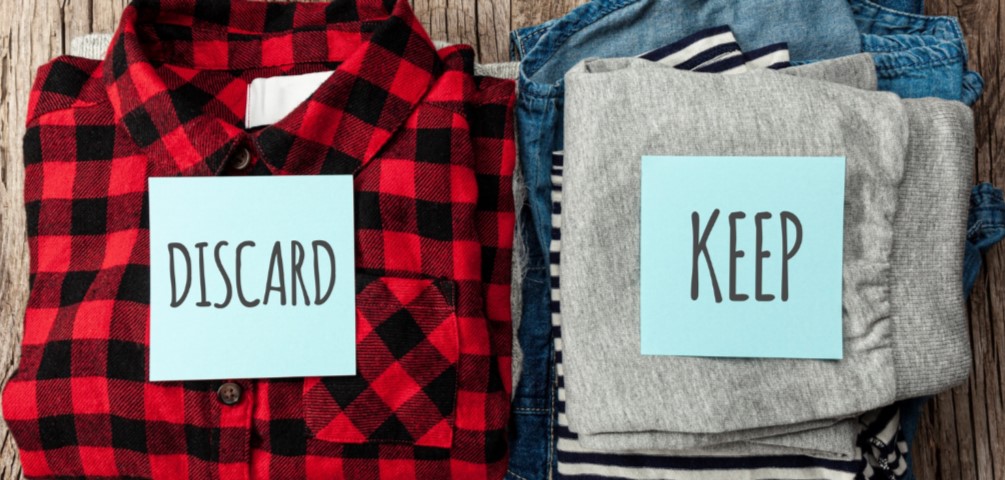
Resources - July 11, 2020
by Amanda Ranowsky
Decluttering and downsizing your home may seem like an overwhelming task, but it doesn’t have to be. Whether you’re preparing for a move or just want to reduce the amount of stuff piling up in the corners, decluttering can go a long way toward making your day-to-day safer and more manageable.
In a recent webinar presented by Goodwin Living At Home and our two Goodwin Living Life Plan Communities (Goodwin House Alexandria and Goodwin House Bailey’s Crossroads), Organization expert Eileen Spata offered tips and ideas to help you accomplish your decluttering goals. Spata is a client experience manager at Wayforth, the nation’s largest move management provider. Over the years, she’s helped many older adults de-clutter their homes and prepare for a move, whether to a smaller home or a senior living community.
Just about everyone would say they want to be more organized and have more space in their homes. They resist decluttering because it often seems like a gargantuan, overwhelming task.
Spata suggested that the easiest way to overcome your mental block for decluttering is to start now and start small. Starting to declutter before you need to will make the process less overwhelming because you won’t have other pressures to manage – like an upcoming move. “It’s never too early to start,” she said.
Spata suggested starting small by picking one area and staying there – start with one drawer, for instance. By breaking up the job into small, manageable tasks, you’ll find it easier to get the job done. Accomplishing small goals like these then gives you the motivation to continue to the next drawer, and the next, and so forth – before you know it, you’ll have decluttered your entire home!
Spata said there are four types of clutter that are often responsible for derailing decluttering efforts.
Whatever you choose to keep in your home should represent your actual needs. “I think the quantity of something that you have should reflect the lifestyle that you lead,” said Spata. If you’re looking to downsize, but are afraid of letting go of too much, Spata suggests starting to live with whatever quantity you are considering – 4 sets of dishes instead of 8, for instance – and see if it works for you. If you find you actually need six sets of dishes regularly, you’ll have the confidence to let go of the other two sets.
In the second half of her webinar, Spata demonstrated a trick you can apply to make your decluttering more manageable. Unlike the common method of “take it all out and only put back what you’re going to keep”, Spata’s method won’t leave you with a pile of stuff on the floor if you get distracted partway through.
Watch the webinar to see her demonstration and hear all of the great tips she has to offer. Before you know it, you’ll be a decluttering pro!
————————————-
As Marketing & Communications Specialist, Amanda Ranowsky partners with colleagues throughout Goodwin Living to tell our stories and raise brand awareness. From printed collateral to digital marketing, Amanda covers many bases. Before joining GHI, Amanda worked for a small, family-owned business where she gained experience in content marketing. Amanda’s creative expression extends beyond the office. She is an active member of community theater and chorus groups.
